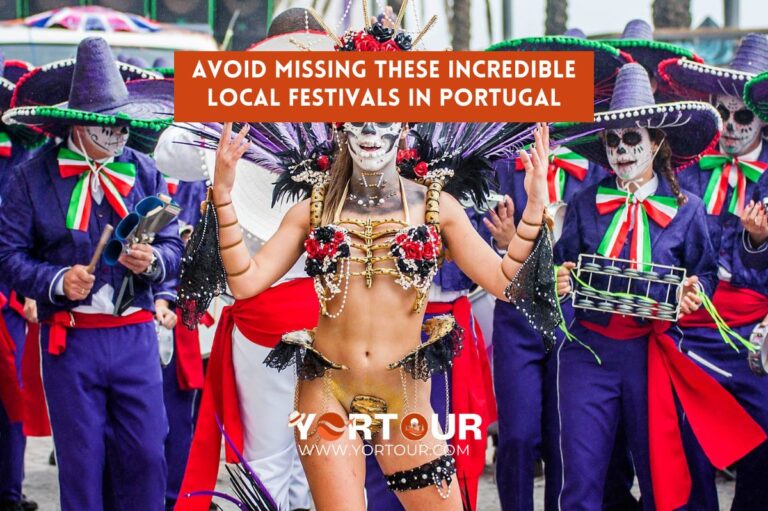Portugal, a country known for its rich culture, history, and beautiful landscapes, also boasts a vibrant festival scene. Throughout the year, incredible local festivals in Portugal offer visitors a unique chance to experience the country’s traditions, music, dance, and cuisine. From lively street parades to solemn religious processions, these festivals allow you to immerse yourself in Portugal’s cultural fabric and local communities.
With festivals taking place across the country, from the bustling streets of Lisbon to the quiet villages of the countryside, there’s no shortage of opportunities to witness the best of Portuguese heritage. Whether you’re a fan of music, food, history, or folklore, there’s a celebration waiting for you.
In this guide, we will explore incredible local festivals in Portugal, breaking down the must-see events that offer an authentic look at the country’s diverse traditions.
1. Carnaval (February/March)
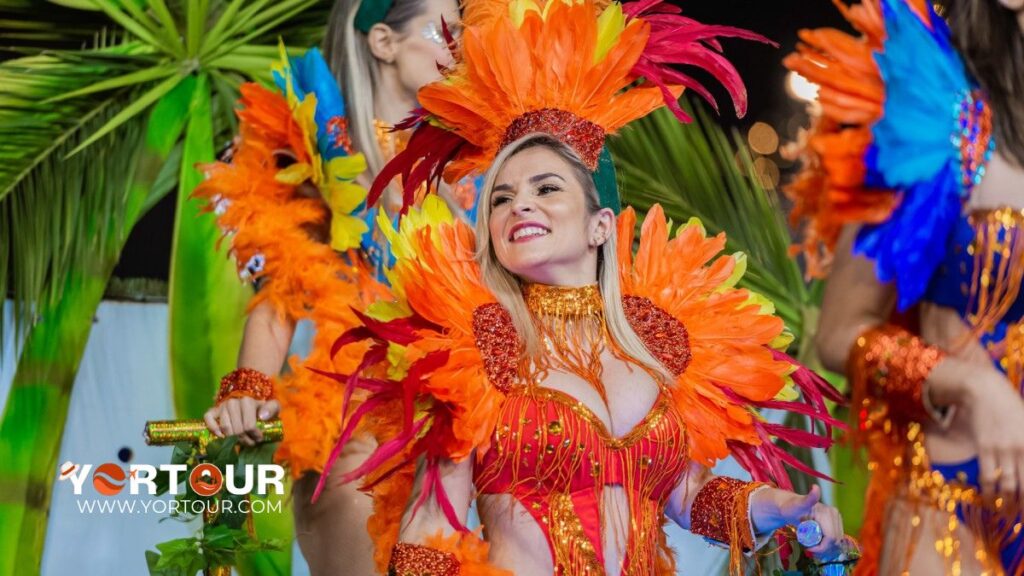
Carnaval in Portugal is a joyous, colorful event held annually before Lent. Celebrated across the country, each region adds its own unique twist to the festivities. The largest celebrations occur in cities like Ovar, Torres Vedras, and Loulé, where streets are filled with parades, music, and elaborate costumes.
Features of Carnaval:
- Street parades with vibrant floats and performers.
- Traditional masks and costumes.
- Samba music and dancing.
While Carnaval is a Christian celebration marking the beginning of Lent, the focus is on fun, freedom, and creativity, making it one of the most incredible local festivals in Portugal.
2. Festas de Lisboa (June)
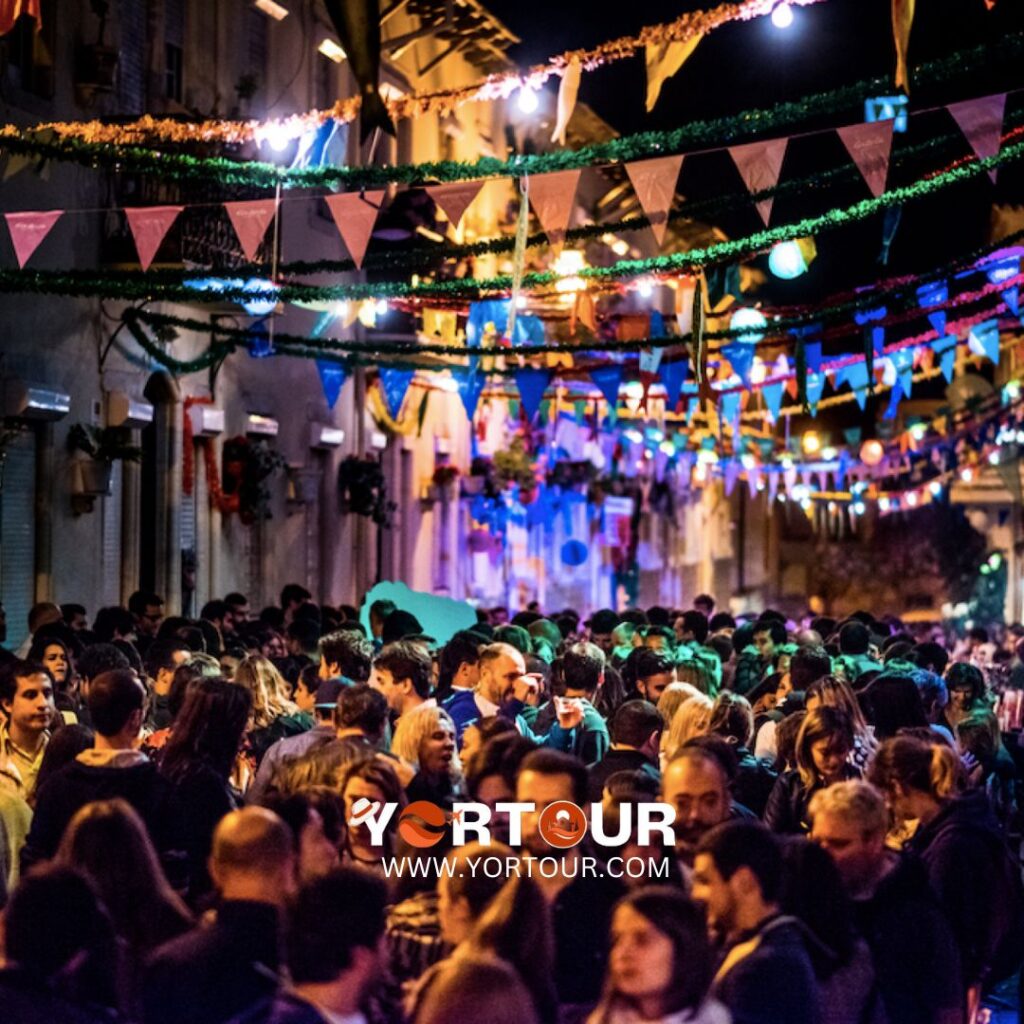
Every June, the Festas de Lisboa celebrate Lisbon’s patron saint, St. Anthony. The entire city comes alive with street parties, parades, and food festivals. This month-long celebration is one of the most anticipated events in the capital, bringing together locals and tourists alike.
Highlights of Festas de Lisboa:
- Marchas Populares: Colorful parades representing the city’s neighborhoods.
- Traditional grilled sardines served on every corner.
- Fado music performances in the streets.
Visitors can also witness the Santo António Weddings, where multiple couples tie the knot in a mass wedding ceremony, a long-standing tradition in Lisbon.
3. São João Festival (June)
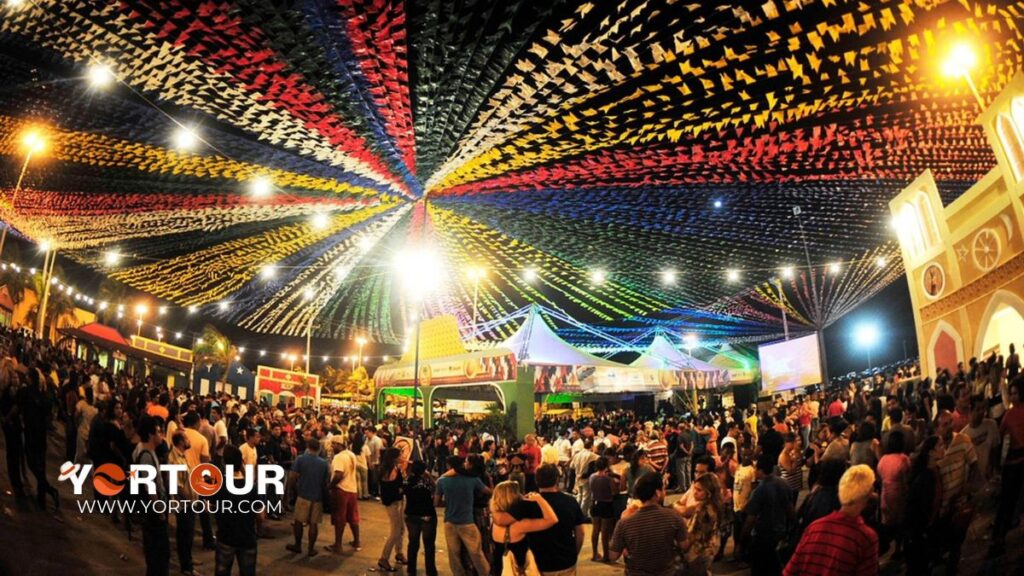
The São João Festival in Porto is one of the liveliest celebrations in Portugal. Held annually on June 23rd, this festival is a tribute to St. John the Baptist and is marked by a mix of religious and playful activities.
What to Expect:
- Crowds hitting each other with plastic hammers (a local tradition).
- Fireworks over the Douro River.
- Grilled sardines and other traditional foods served at street parties.
São João is a night filled with joy, laughter, and community spirit, making it one of the most incredible local festivals in Portugal.
4. Festa da Flor (April/May)

The Festa da Flor or Flower Festival is an annual celebration on the island of Madeira, held in the spring. This festival celebrates the blooming of the island’s flowers and pays homage to nature’s beauty.
Key Attractions:
- Floral parades with floats decorated entirely with flowers.
- The Wall of Hope: A symbolic wall built by children, placing flowers to represent peace and harmony.
- Markets selling traditional handicrafts and floral arrangements.
This festival showcases the island’s breathtaking flora, making it a must-see for nature lovers and those seeking a unique cultural experience.
5. Festa de São Pedro (June/July)
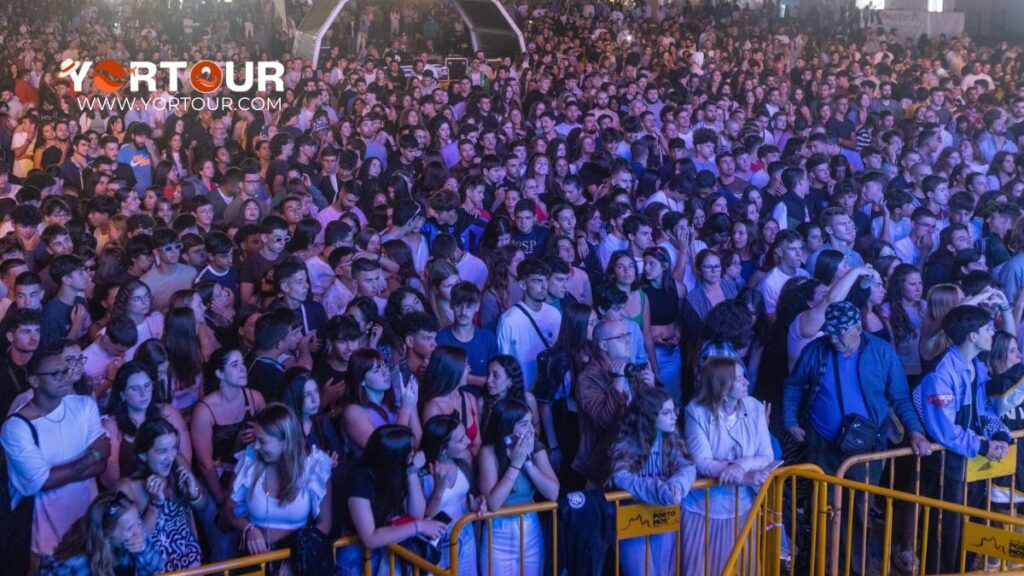
Celebrated mainly in coastal towns like Póvoa de Varzim and Sintra, the Festa de São Pedro honors St. Peter, the patron saint of fishermen. This festival is rooted in maritime traditions, blending religious devotion with vibrant festivities.
Key Events:
- Processions through the streets carrying statues of St. Peter.
- Street decorations and lively evening parties.
- Traditional food stalls serving fresh seafood.
This festival celebrates the importance of the sea in Portuguese life, particularly for coastal communities that rely on fishing.
6. Feira Nacional de Agricultura (June)

The Feira Nacional de Agricultura in Santarém is one of Portugal’s largest agricultural fairs. This festival is a celebration of Portugal’s agricultural heritage and a key event for farmers and rural communities.
Festival Features:
- Livestock exhibitions showcasing native Portuguese breeds.
- Agricultural product markets with fresh produce, cheeses, and wines.
- Traditional music and folk dancing performances.
For those interested in experiencing Portugal’s rural traditions, the Feira Nacional de Agricultura is an excellent opportunity to engage with local farming culture.
7. Medieval Festival of Óbidos (July)
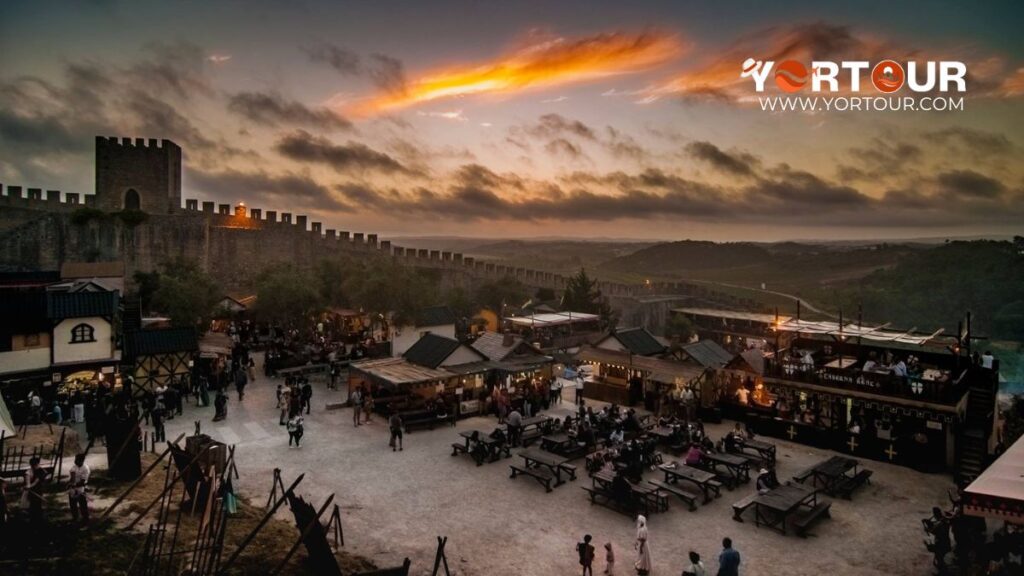
Step back in time at the Medieval Festival of Óbidos, held every summer in the picturesque village of Óbidos. This historical event recreates the medieval atmosphere with knights, street performers, and traditional crafts.
Highlights of the Festival:
- Jousting tournaments and reenactments of historical battles.
- Medieval music, dance, and theater performances.
- Markets offering traditional medieval foods and handicrafts.
This festival is a time capsule that allows visitors to experience the charm and traditions of Portugal’s medieval past.
8. Festa dos Tabuleiros (July/August, every 4 years)
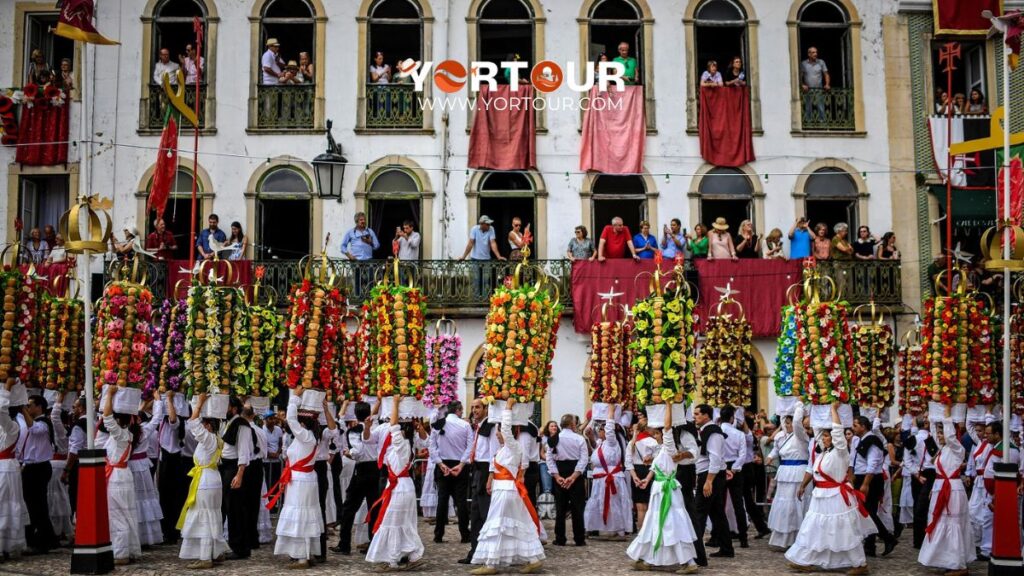
Held every four years in Tomar, the Festa dos Tabuleiros (Festival of the Trays) is one of the most unique and visually striking festivals in Portugal. It combines religious devotion with artistic displays and community involvement.
Key Elements of Festa dos Tabuleiros:
- Parades of women carrying trays filled with bread and flowers on their heads.
- Decorated streets with floral patterns and symbols.
- Traditional dances and music throughout the city.
This festival is a profound expression of faith and culture, with origins dating back to the 13th century.
9. Festival do Marisco (August)
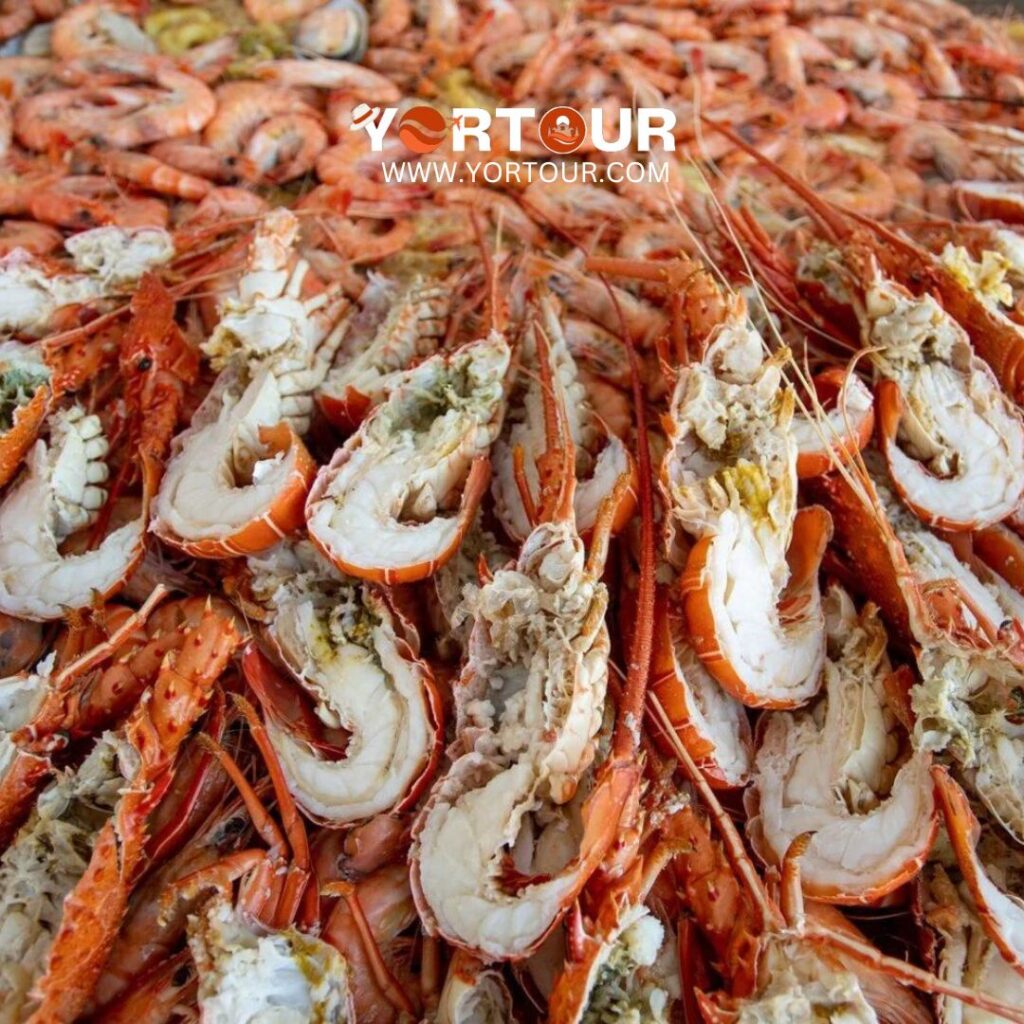
The Festival do Marisco in Olhão, Algarve, is a seafood lover’s paradise. Held annually in August, this festival is dedicated to showcasing the best of Portugal’s seafood cuisine.
Festival Highlights:
- Fresh seafood such as lobster, clams, and prawns prepared by local chefs.
- Live performances of traditional Portuguese music.
- Stalls selling handicrafts and local delicacies.
The Festival do Marisco is a delicious celebration of Algarve’s coastal traditions and culinary heritage.
10. Festa de Nossa Senhora da Agonia (August)
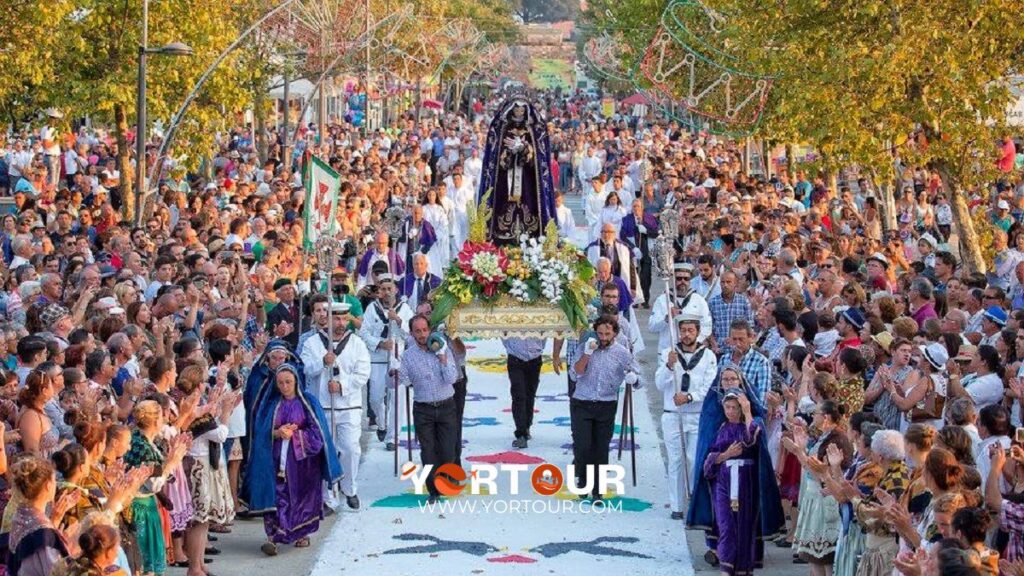
The Festa de Nossa Senhora da Agonia, held in Viana do Castelo, is one of the most important religious festivals in northern Portugal. This celebration honors Our Lady of Sorrows, the protector of fishermen.
Festival Activities:
- Processions featuring traditional gold jewelry worn by local women.
- Decorated streets and floral carpets.
- Fireworks display over the Lima River.
This festival is a blend of religious devotion, regional pride, and artistic expression, making it a true highlight of Portugal’s summer festival season.
Conclusion
Portugal’s festival calendar is packed with events that reflect the country’s rich cultural heritage, religious traditions, and passion for community. From the colorful parades of Carnaval to the deep-rooted traditions of the Festa de Nossa Senhora da Agonia, these festivals offer visitors a unique insight into Portuguese life.
Whether you’re a fan of vibrant street celebrations or prefer more serene religious events, there’s a festival in Portugal that will captivate your senses. The incredible local festivals in Portugal are a testament to the country’s enduring traditions, creativity, and community spirit. Attending any of these festivals provides an unforgettable experience, immersing you in the heart of Portuguese culture.
By planning your trip around one or more of these incredible local festivals in Portugal, you’ll not only enjoy the sights and sounds of this beautiful country but also deepen your connection with its people and traditions. Make sure not to miss out on these remarkable celebrations that showcase the true spirit of Portugal.
FAQs
Here are some frequently asked questions (FAQs) related to incredible local festivals in Portugal:
1. What are the most famous festivals in Portugal?
Portugal is home to several renowned festivals, including Carnaval, Festas de Lisboa, São João Festival in Porto, and the Medieval Festival of Óbidos. Other highlights include Festa dos Tabuleiros in Tomar, Festa de Nossa Senhora da Agonia in Viana do Castelo, and the Flower Festival in Madeira.
2. When is the best time to visit Portugal for festivals?
The best time to visit depends on which festivals you’re interested in. Many of Portugal’s largest festivals take place between June and August, such as the Festas de Lisboa, São João Festival, and Festa dos Tabuleiros. However, festivals like Carnaval occur earlier in the year, typically in February or March.
3. Do I need to purchase tickets for Portugal’s local festivals?
Most local festivals in Portugal are free to attend, especially those with street parades, religious processions, and public celebrations. However, certain events like concerts, food festivals (e.g., the Festival do Marisco), and specific performances at festivals like the Medieval Festival of Óbidos may require ticket purchases.
4. Are Portuguese festivals family-friendly?
Yes, most of the local festivals in Portugal are family-friendly, with activities suitable for all ages. Many include parades, music, dancing, and cultural performances that children and adults alike can enjoy. Some festivals, like the Festa da Flor in Madeira, even have specific events tailored to children.
5. What should I wear to a Portuguese festival?
Dress code varies by festival. For Carnaval or summer festivals like São João, comfortable and casual clothing is ideal, as many of the events are outdoors. For religious festivals such as Festa de Nossa Senhora da Agonia, more modest attire is recommended, especially during religious processions.
6. Are there food festivals in Portugal?
Yes, food plays a central role in many Portuguese festivals. The Festival do Marisco in Olhão is dedicated to seafood, while festivals like Festas de Lisboa and São João Festival offer traditional Portuguese dishes like grilled sardines. Food stalls and markets are common at nearly all local festivals, allowing visitors to enjoy authentic cuisine.
7. How do I find out about upcoming local festivals in Portugal?
To stay informed about incredible local festivals in Portugal, it’s best to check local tourism websites, such as the official tourism boards for Lisbon, Porto, and the Algarve. Additionally, many travel blogs, event calendars, and cultural magazines provide detailed festival schedules.
8. Can tourists participate in Portuguese festivals?
Absolutely! Tourists are welcome and encouraged to join in the festivities. Most local festivals in Portugal are community events, and visitors are often invited to participate in activities, dances, and public celebrations.
9. What are the most unique Portuguese festivals?
Some of the most unique festivals in Portugal include the Festa dos Tabuleiros in Tomar, where women carry trays of bread and flowers on their heads, and the São João Festival in Porto, where people hit each other with plastic hammers. The Medieval Festival of Óbidos is also distinctive, transporting visitors back in time with reenactments and medieval markets.
10. Are Portuguese festivals religious or secular?
Portugal’s festivals are a mix of both religious and secular traditions. Many, like the Festas de Lisboa and Festa de Nossa Senhora da Agonia, have strong religious roots, while others, such as Carnaval and Festival do Marisco, are more secular and focus on community celebrations and entertainment.
